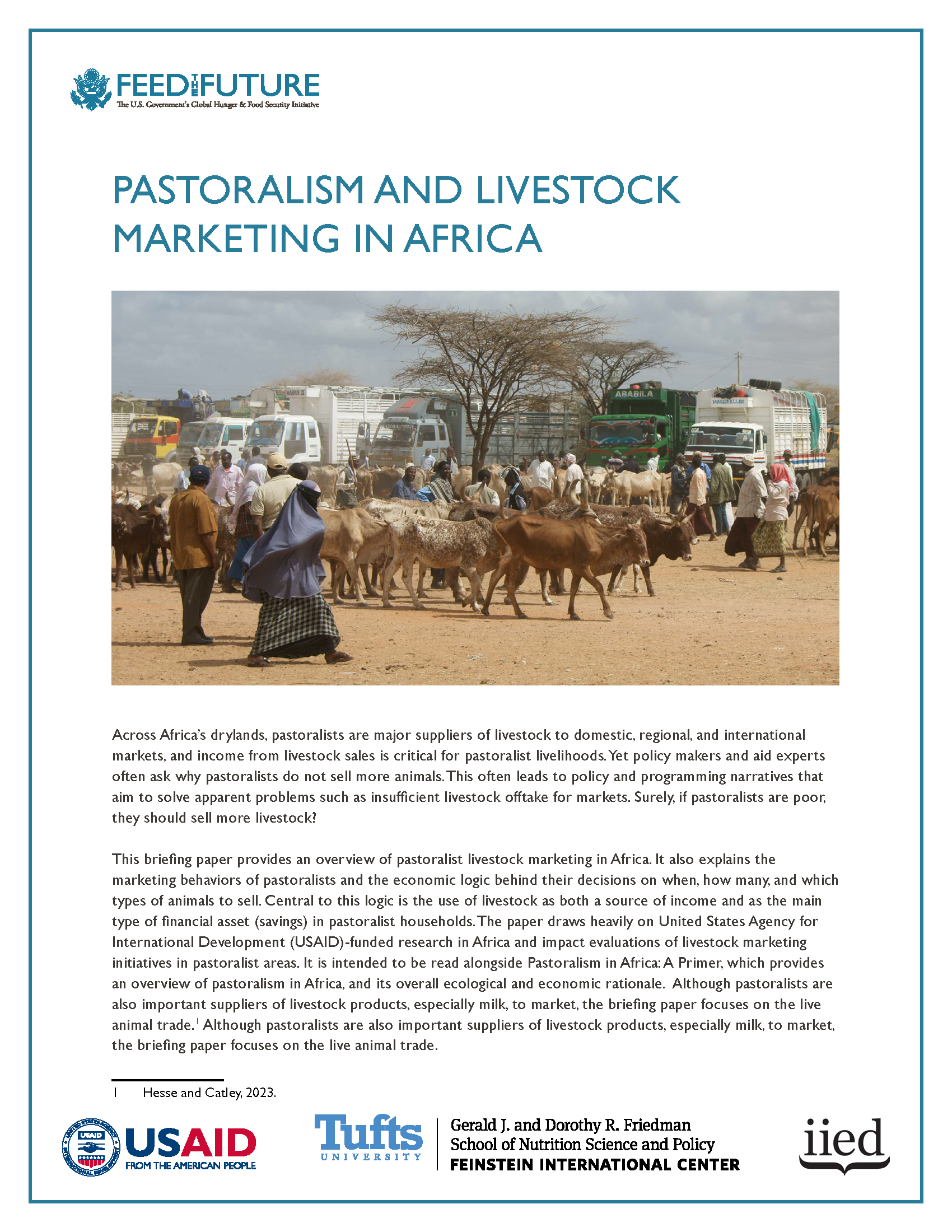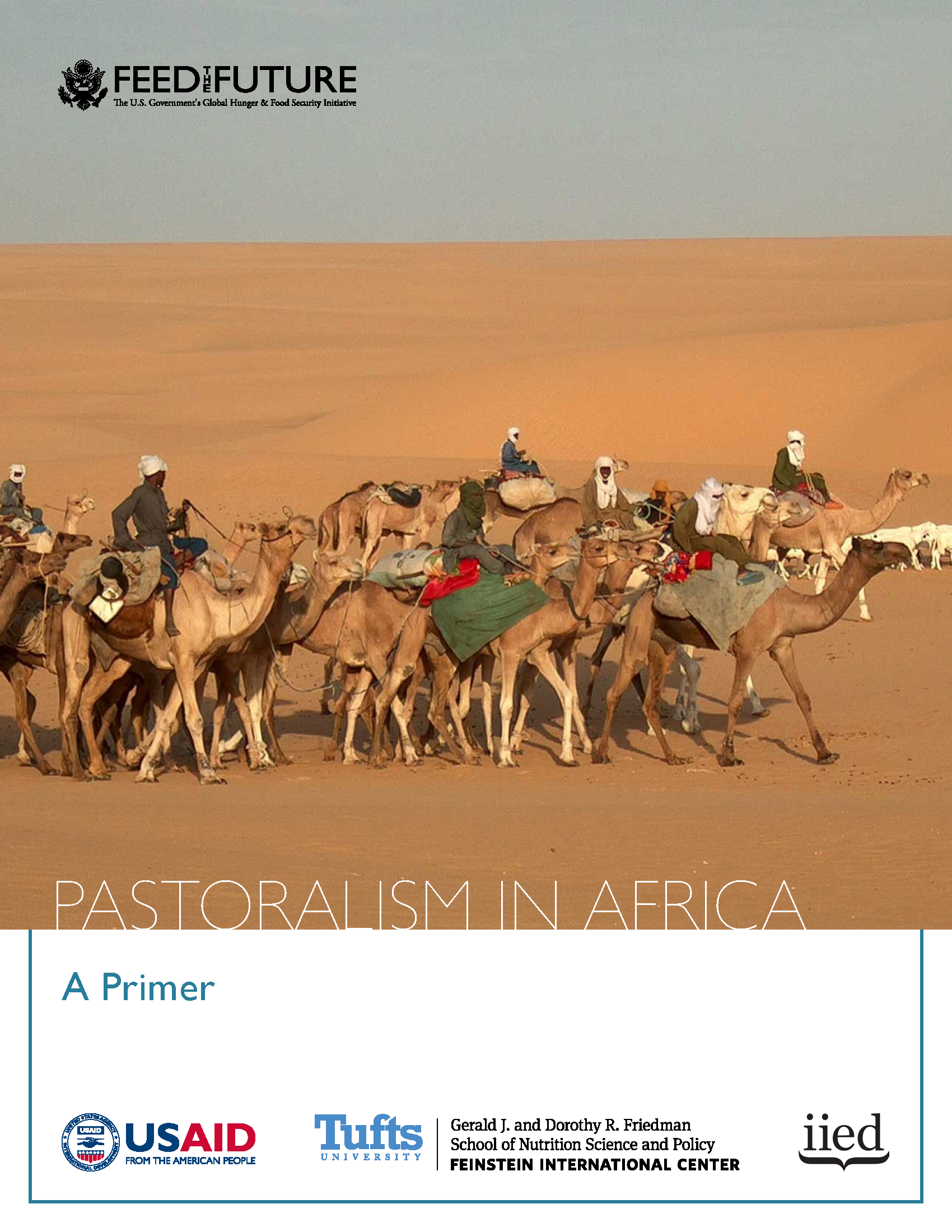This briefing paper provides an overview of pastoralist livestock marketing in Africa. It also explains the marketing behaviors of pastoralists and the economic logic behind their decisions on when, how many, and which types of animals to sell.
Central to this logic is the use of livestock as both a source of income and as the main type of financial asset (savings) in pastoralist households.
The paper draws heavily on United States Agency for International Development (USAID)-funded research in Africa and impact evaluations of livestock marketing initiatives in pastoralist areas.
It is intended to be read alongside Pastoralism in Africa: A Primer, which provides an overview of pastoralism in Africa, and its overall ecological and economic rationale. Although pastoralists are also important suppliers of livestock products, especially milk, to market, the briefing paper focuses on the live animal trade.
The production of this briefing paper was funded by the United States Agency for International Development via Cooperative Agreement No. 7200AA21CA00020, Pastoralism in Africa, to the Feinstein International Center, Friedman School of Nutrition Science and Policy at Tufts University.







